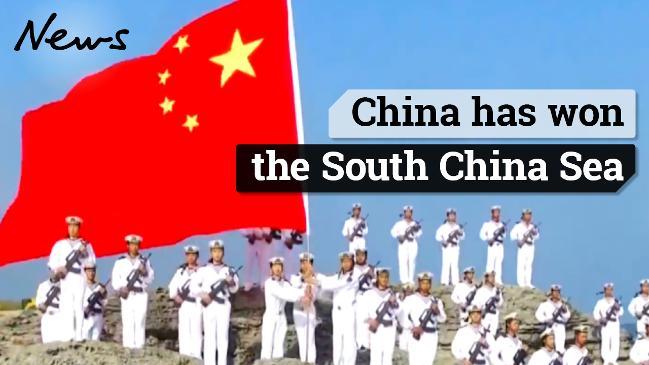China wants to conquer the world, and several countries are now swimming in debt to it
CHINA wants to conquer the world, and its sneaky strategy to get there already has several countries in a sticky situation.
MARCH 25, 20186:46AM
CHINA is out to conquer the world, and many have already fallen victim to its game.
The rising superpower has been asserting itself on the global stage for well over a decade, with its Belt and Road Initiative, part of its aim to become a central player.
But recent data from the Centre for Global Development (CGD), an international think tank, suggests its program has already left eight countries swimming in debt: Djibouti, Kyrgyzstan, Laos, the Maldives, Mongolia, Montenegro, Pakistan and Tajikistan.
After borrowing money from China for infrastructure projects, these countries are now pushing their debt-to-GDP ratios higher and higher, with China holding a rising share in them.
POORER COUNTRIES FALLING AT CHINA’S FEET
China’s game, best summed up by Quartz, goes like this: they offer the honey of cheap infrastructure loans, then attack with the sting of default when these poorer economies aren’t able to pay their interest down.
At the heart of this sits the Belt and Road Initiative, a trillion-dollar project that seeks to connect countries across continents on trade, with China at its centre.
The ambitious plan involves creating a 6000km sea route connecting China to South East Asia, Oceania and North Africa (the “Road”), as well as through building railway and road infrastructure to connect China with Central and West Asia, the Middle East and Europe (the “Belt”).

This map details China's One Belt One Road Initiative.Source:Supplied
According to Dr Malcolm Davis, senior analyst in defence strategy and capability at the Australian Strategic Policy Institute, China is mainly targeting poorer countries and employing a “debt-trap strategy”.
Dr Davis told news.com.au the trillion-dollar project basically forces other countries to align themselves with it.
“It gets countries — particularly poorer countries — hooked on debts they can’t pay back,” he said. “When they can’t pay it back, China basically grabs ports, facilities or territory. It’s a debt-trap strategy.
“It services their need in terms of accessing resources, sustaining contacts and national development, and maintaining that ‘China Dream’. It’s really vital for the Communist Party to maintain prosperity if they want to maintain power.”
He used Sri Lanka as a key example.
Last year, the island nation was forced to hand over a port to companies owned by the Chinese government last year after falling into more than $1 billion in debt.
The deal was signed between two state firms — the Sri Lanka Ports Authority (SLPA) and China Merchants Port Holdings — allowing the state-owned Chinese company to lease the port for 99 years.

Last year Sri Lanka formally signed its strategic Hambantota Port over to China for 99 years.Source:Supplied
Tajikistan faced a similar story in 2011.
According to the CGD report, China reportedly agreed to write off an unknown amount of debt owed by Tajikistan in exchange for some 1158sq km of disputed territory.
At the time, Tajik authorities said they only agreed to provide 5.5 per cent of the land that Beijing originally sought.
Kyrgyzstan’s debt from infrastructure projects is set to raise from 62 per cent of the country’s GDP to 78 per cent, while China’s share of this debt will jump from 37 per cent to 71 per cent.

Eight countries are becoming indebted to China. Source: CGD.Source:Supplied
Likewise, Cambodia and Afghanistan could soon owe more than half their external debt to China, according to the Wall Street Journal, although the levels aren’t as concerning as for the other eight countries.
The report notes that in some instances, the debt is forgiven. But China responds on a case-by-case basis, and it’s difficult to know when they will and will not choose to make territory grabs.
HOW THE WEST IS RESPONDING
Earlier this month, former US Secretary of State Rex Tillerson warned of China’s debt trap plan.
Beijing “encourages dependency using opaque contracts, predatory loan practices, and corrupt deals that mire nations in debt and undercut their sovereignty, denying them their long-term, self-sustaining growth,” he said. “Chinese investment does have the potential to address Africa’s infrastructure gap, but its approach has led to mounting debt and few, if any, jobs in most countries.”

The Belt and Road Initiative is part of Xi Jinping’s plan to conquer the world, but the West is wary.Source:AFP
But experts say this could present a challenge for Xi Jinping if what happened to Sri Lanka happens to other countries, particularly because the Chinese president is trying to portray his plan as beneficial for every nation that takes part.
According to the CGD, a total of 68 countries fall under the scope of the Belt and Road Initiative. Australia, the United States and countries in Western Europe have not signed up to it.
Dr Davis warned that China poses a long-term threat to the West — including Australia.
“China is emphasising the Belt and Road Initiative to increase their presence around the world, but they’re also developing a strong military to allow them to project power into the Indian Ocean, and to undertake an anti-American axis,” he told news.com.au.
“We’re not isolated. We’re part of a globalised international system. We’re a key US ally, we’re going to be on the front lines, and we can’t avoid them.”
As it stands, Australia is mulling a joint regional infrastructure scheme to rival Beijing’s rising influence.
Last month, Prime Minister Malcolm Turnbull hinted at an alliance between Australia, India, Japan and the US as an “alternative” to China’s plans.




No comments:
Post a Comment
Comments always welcome!